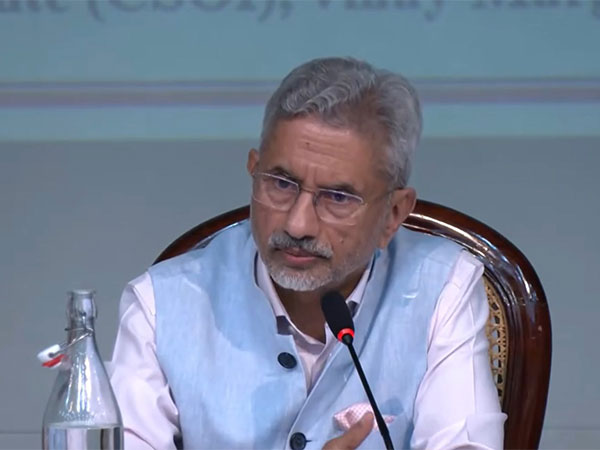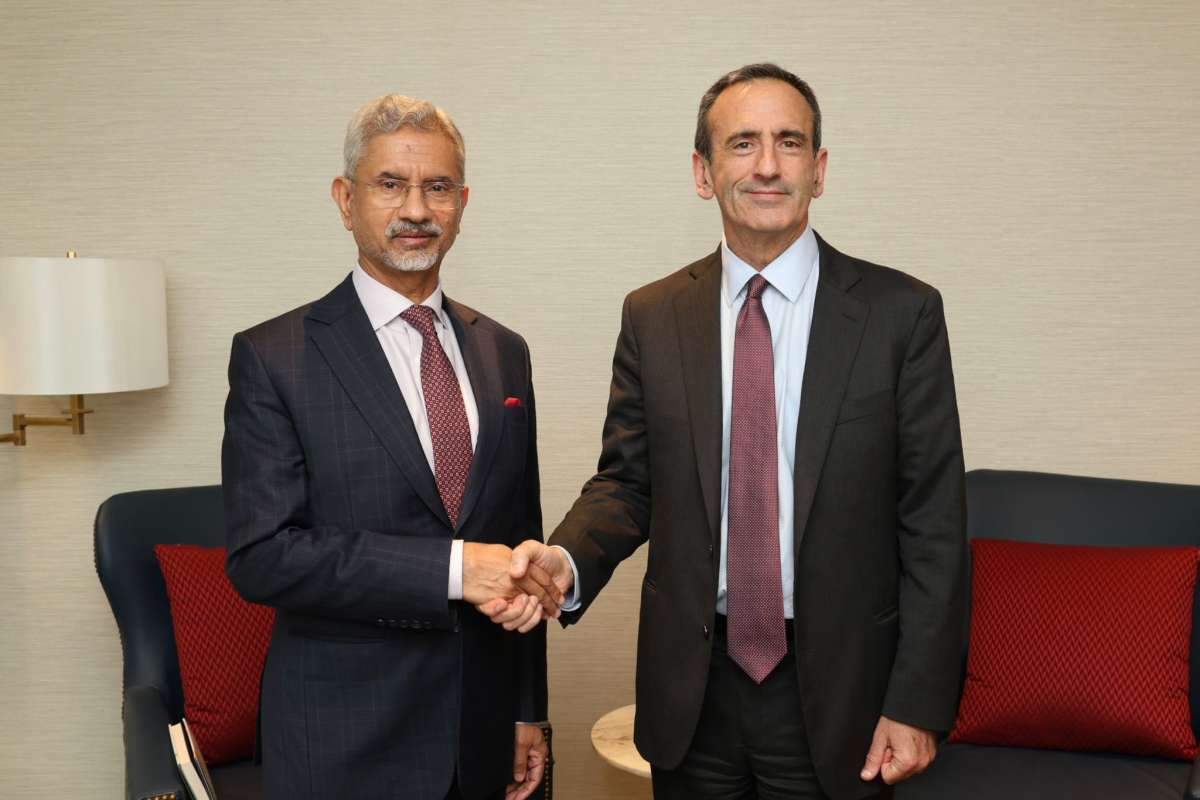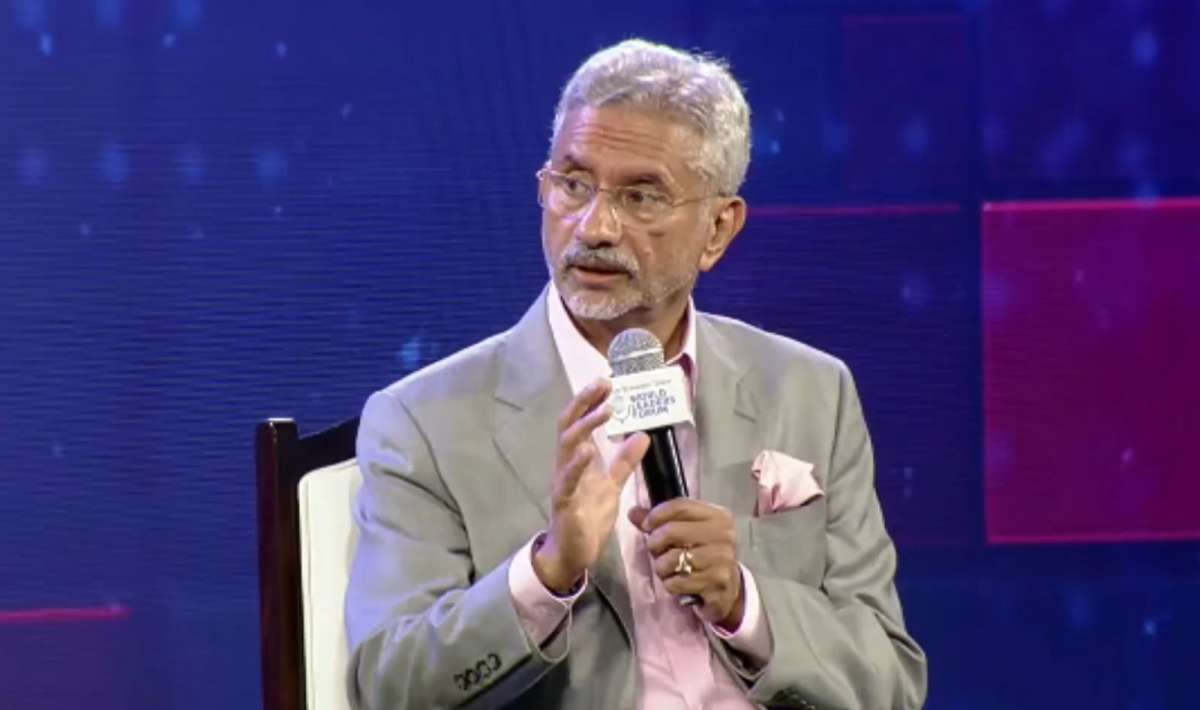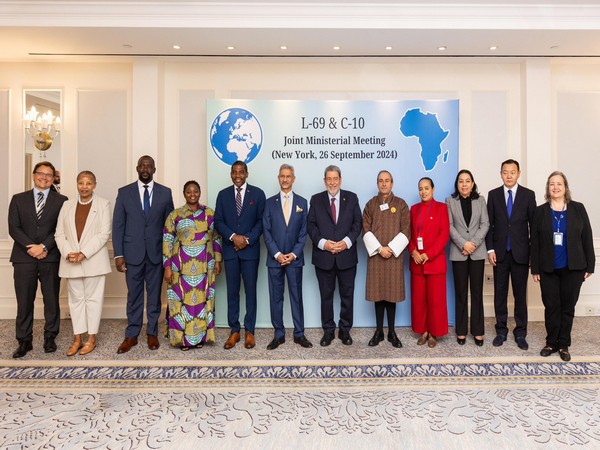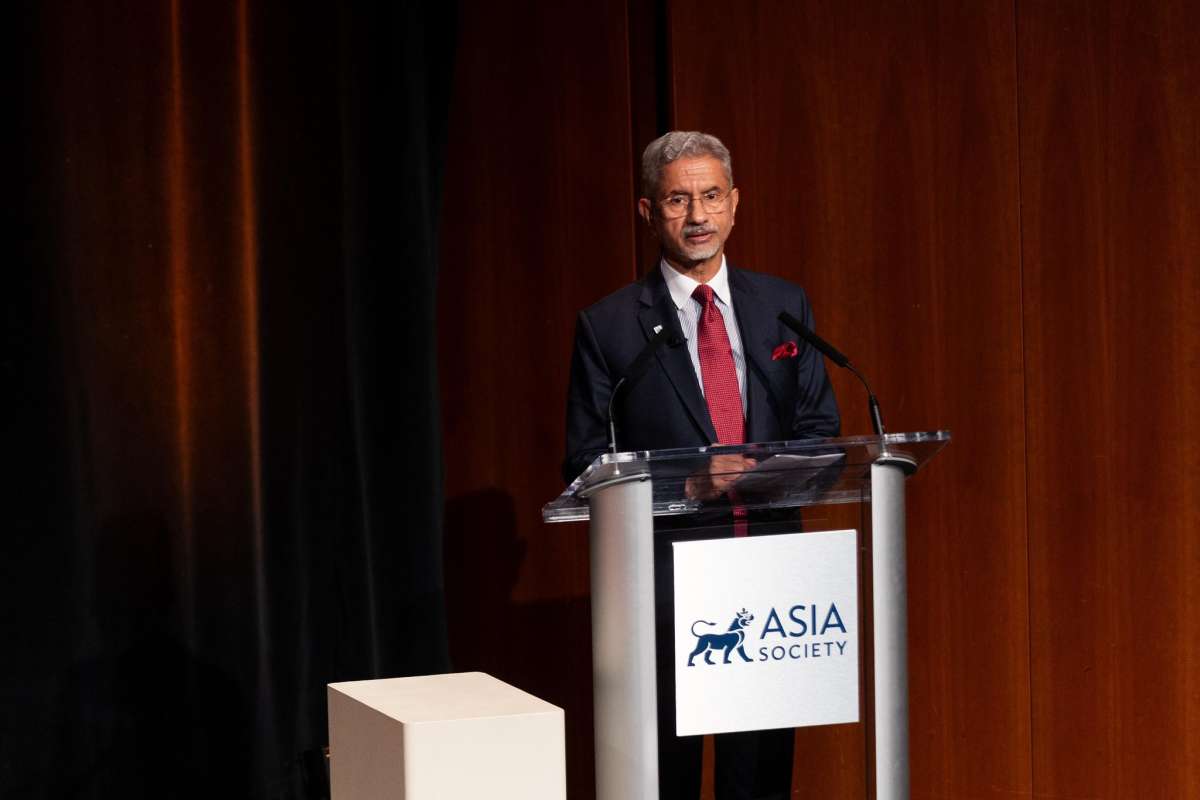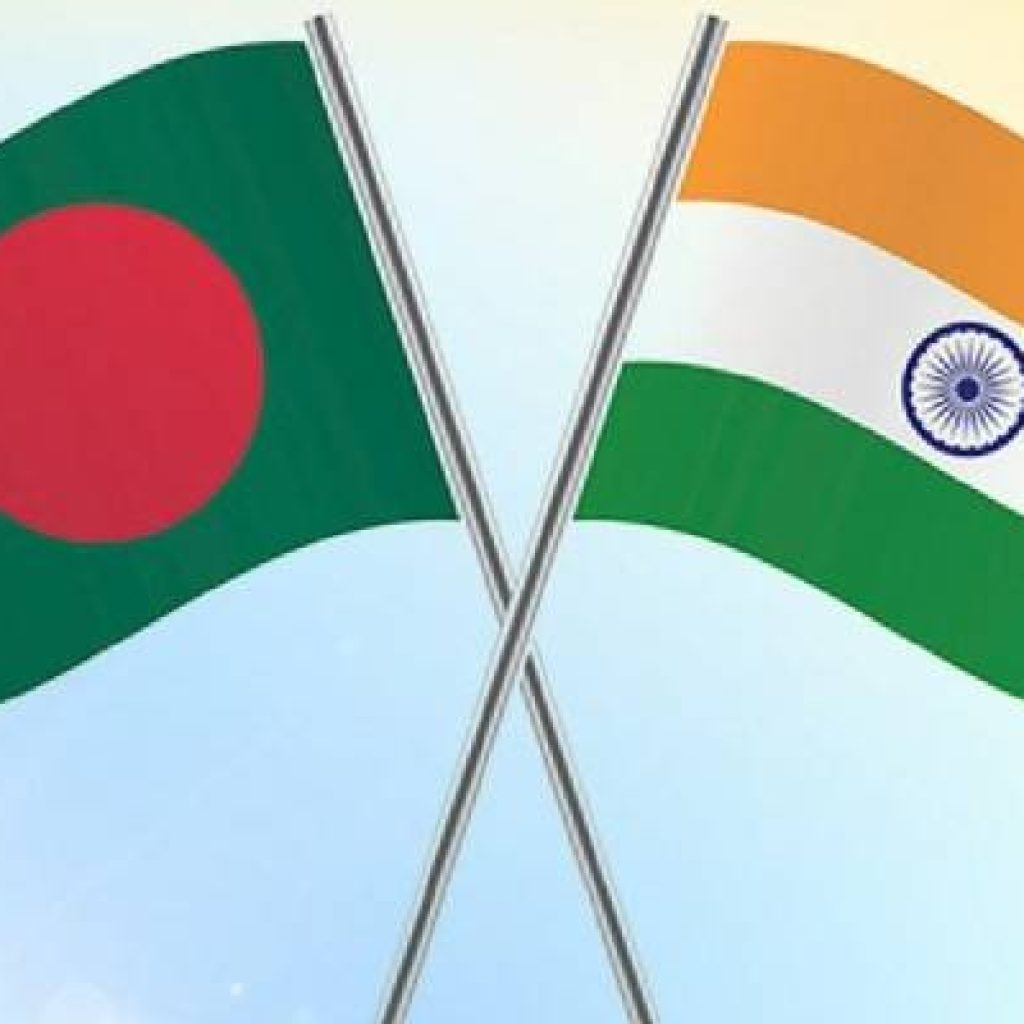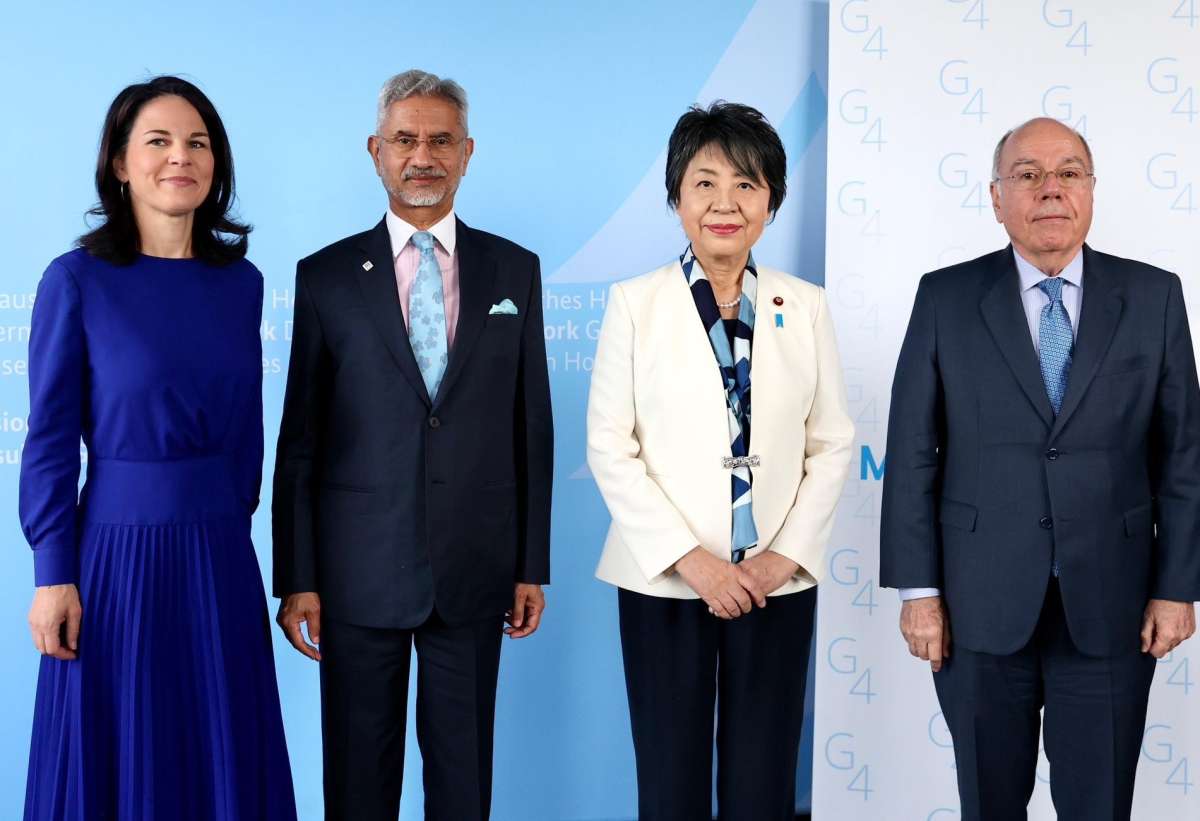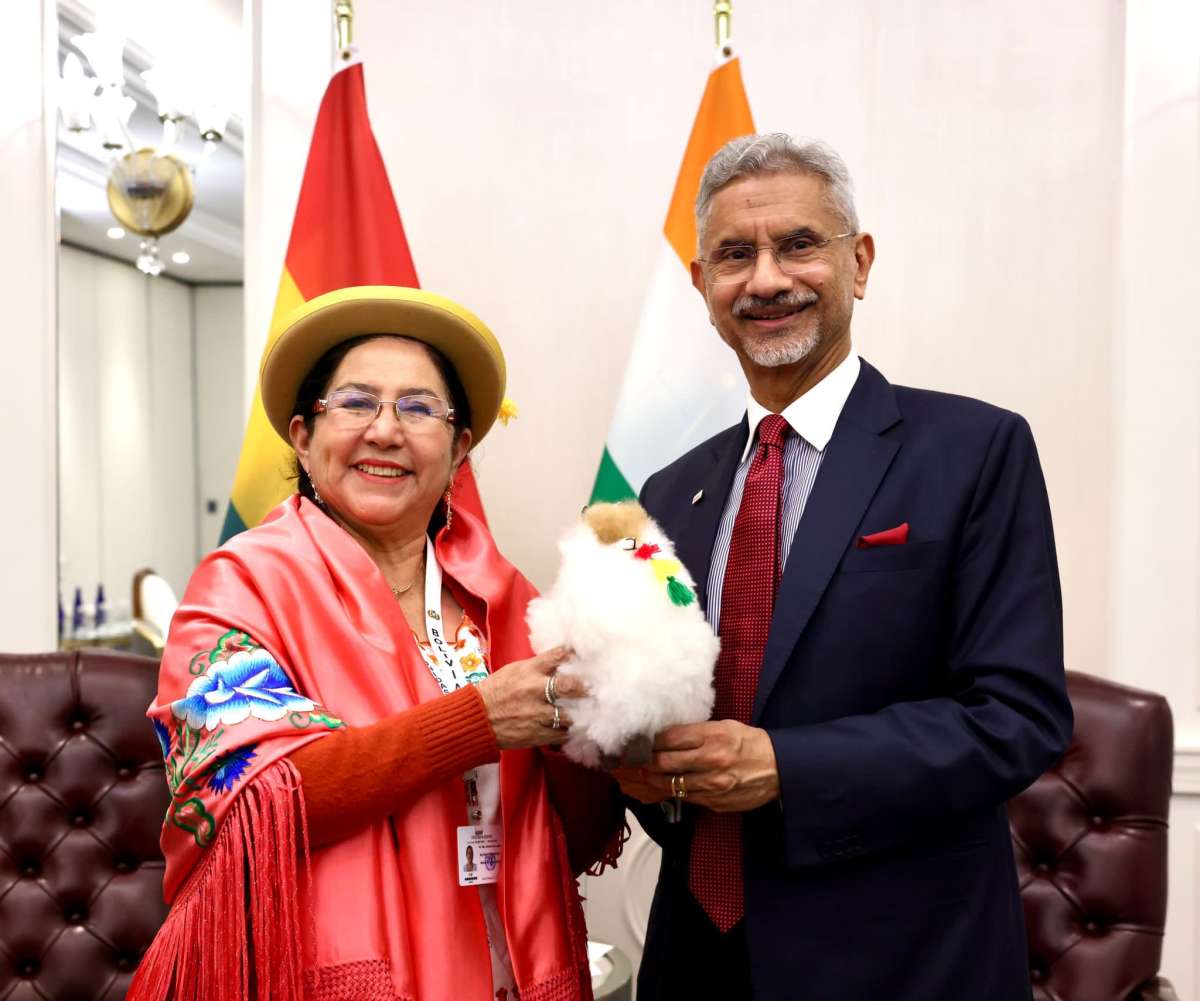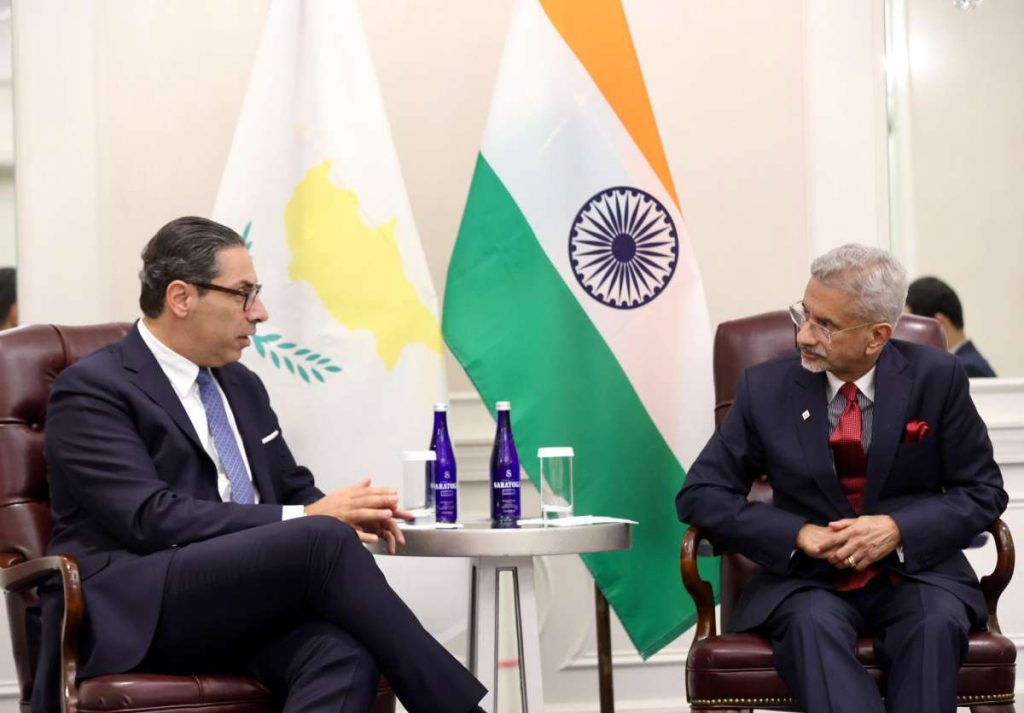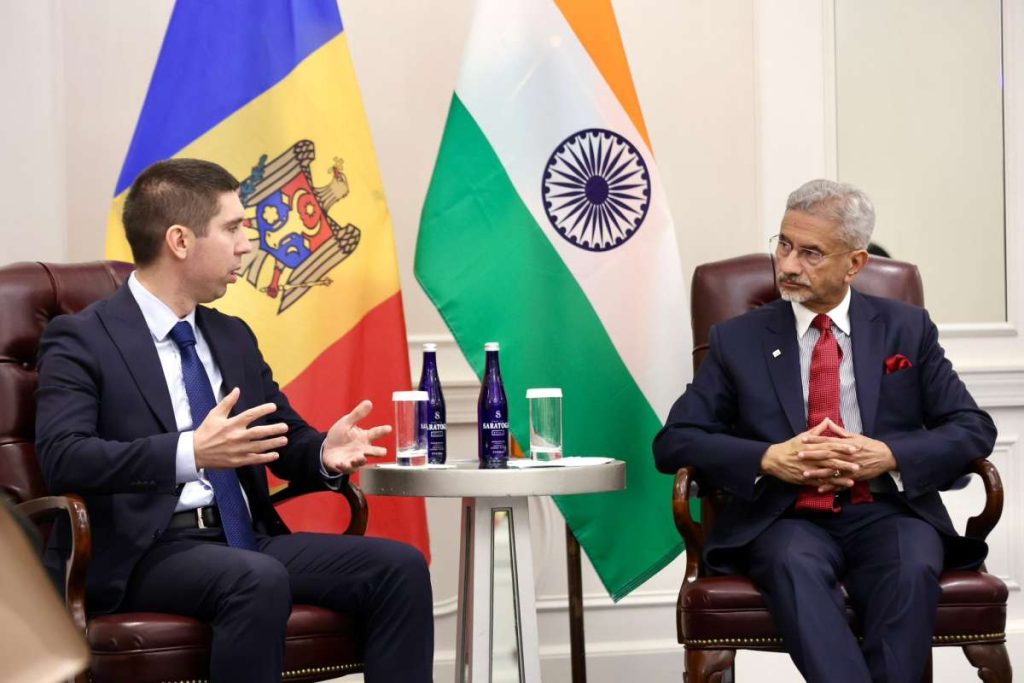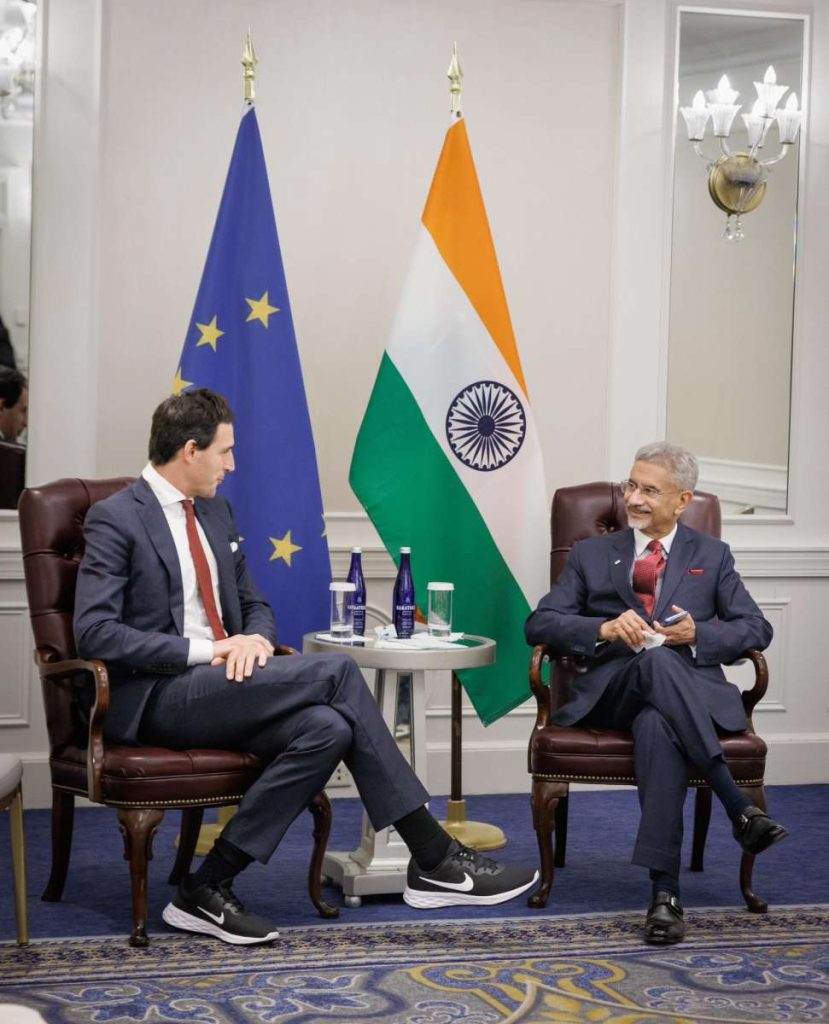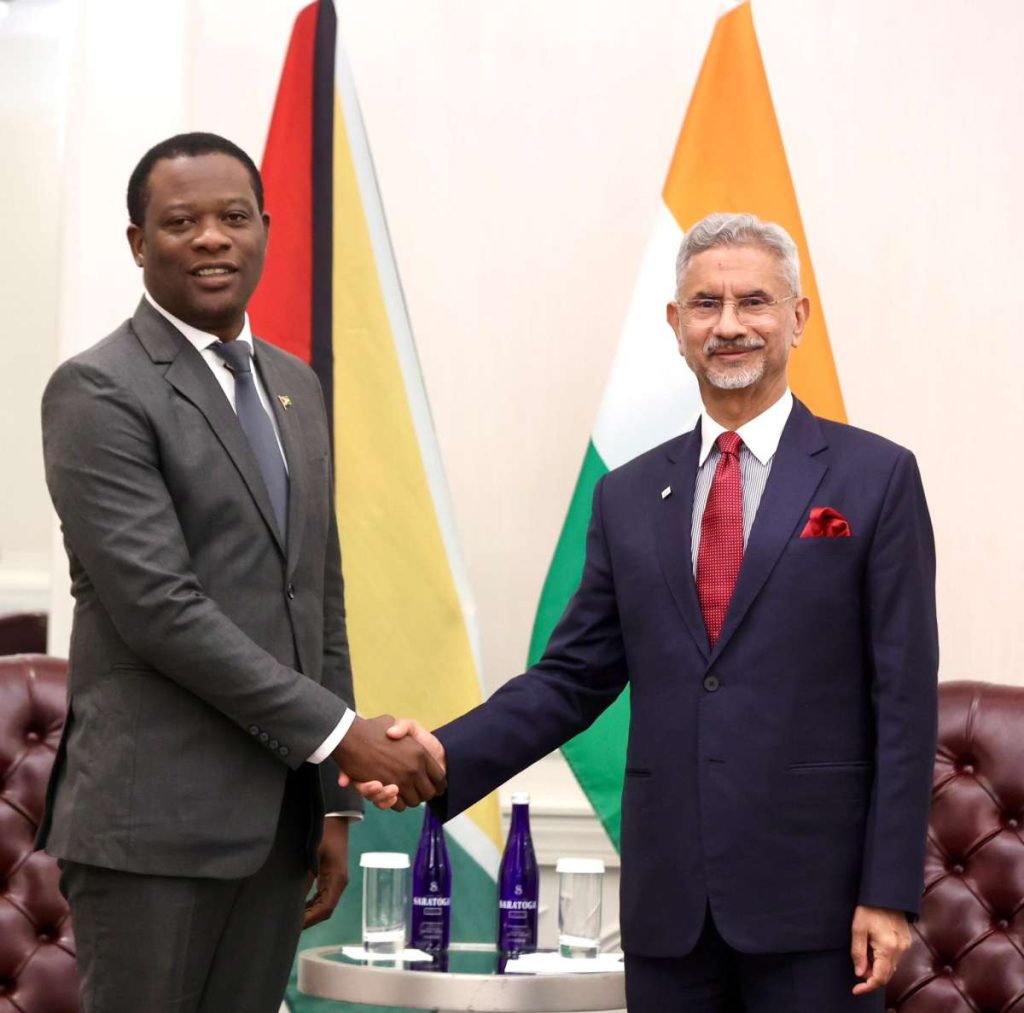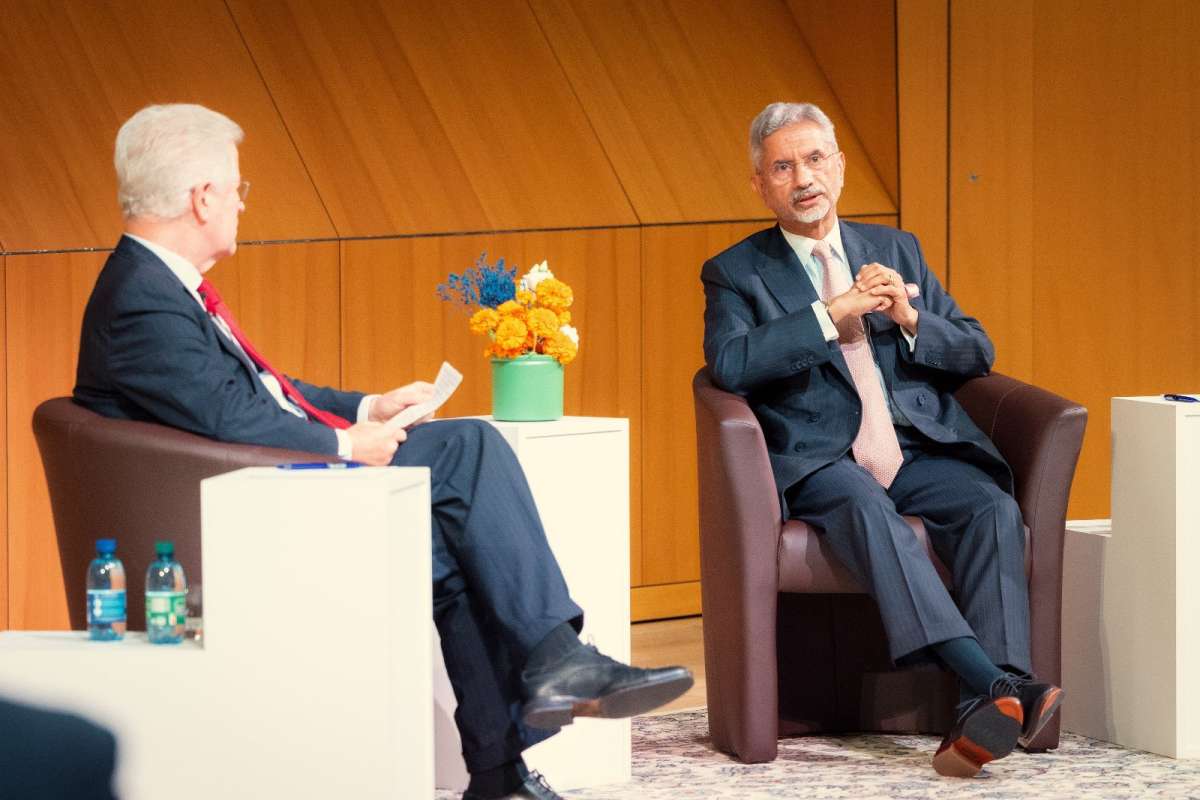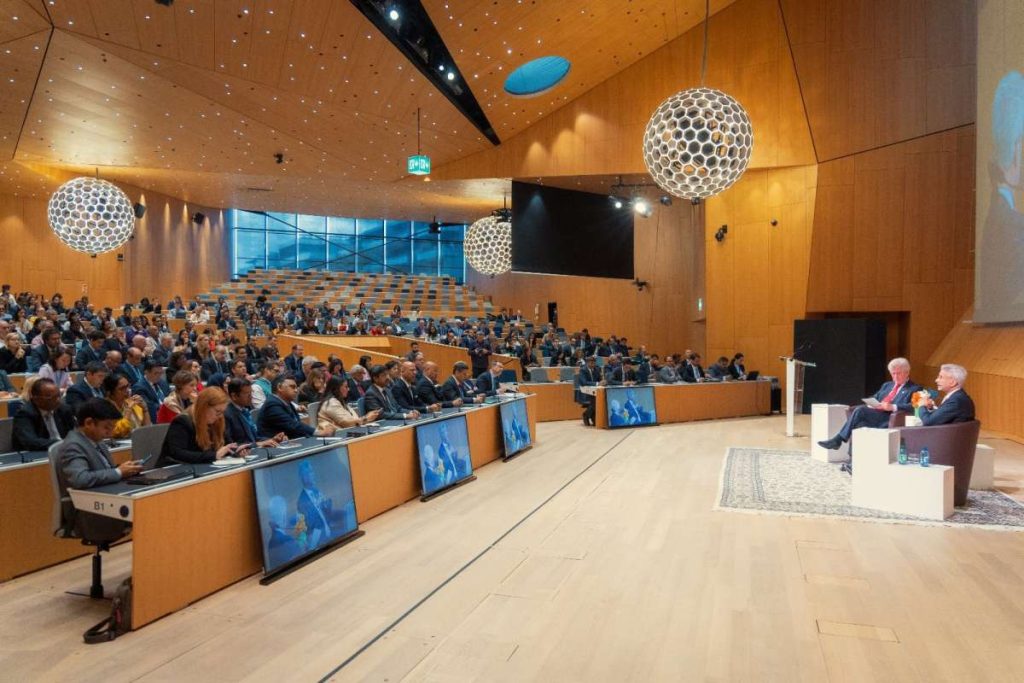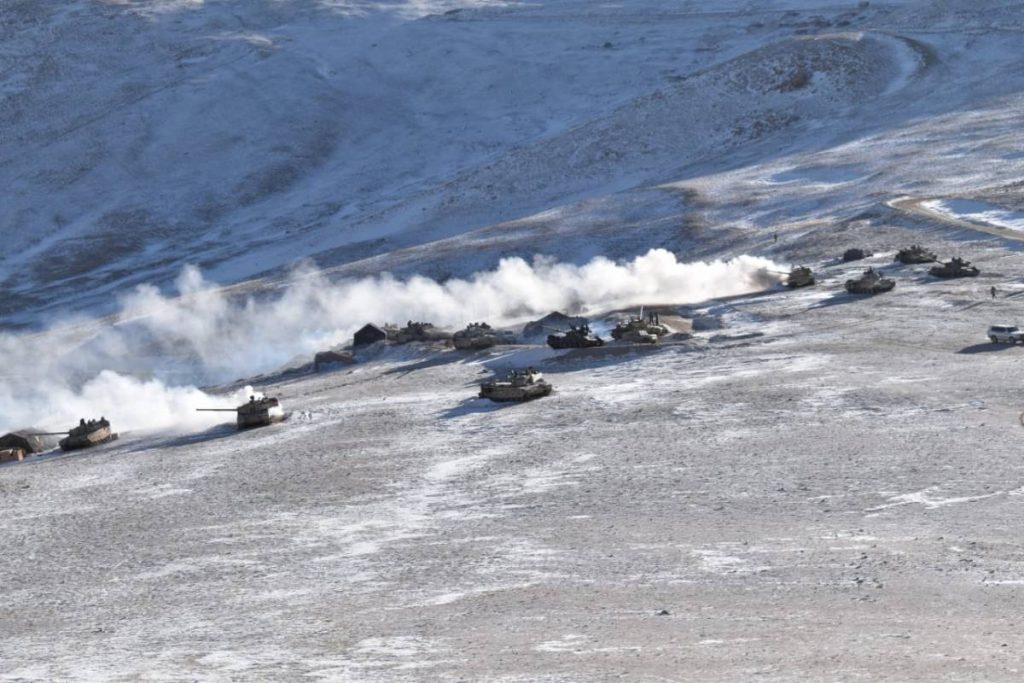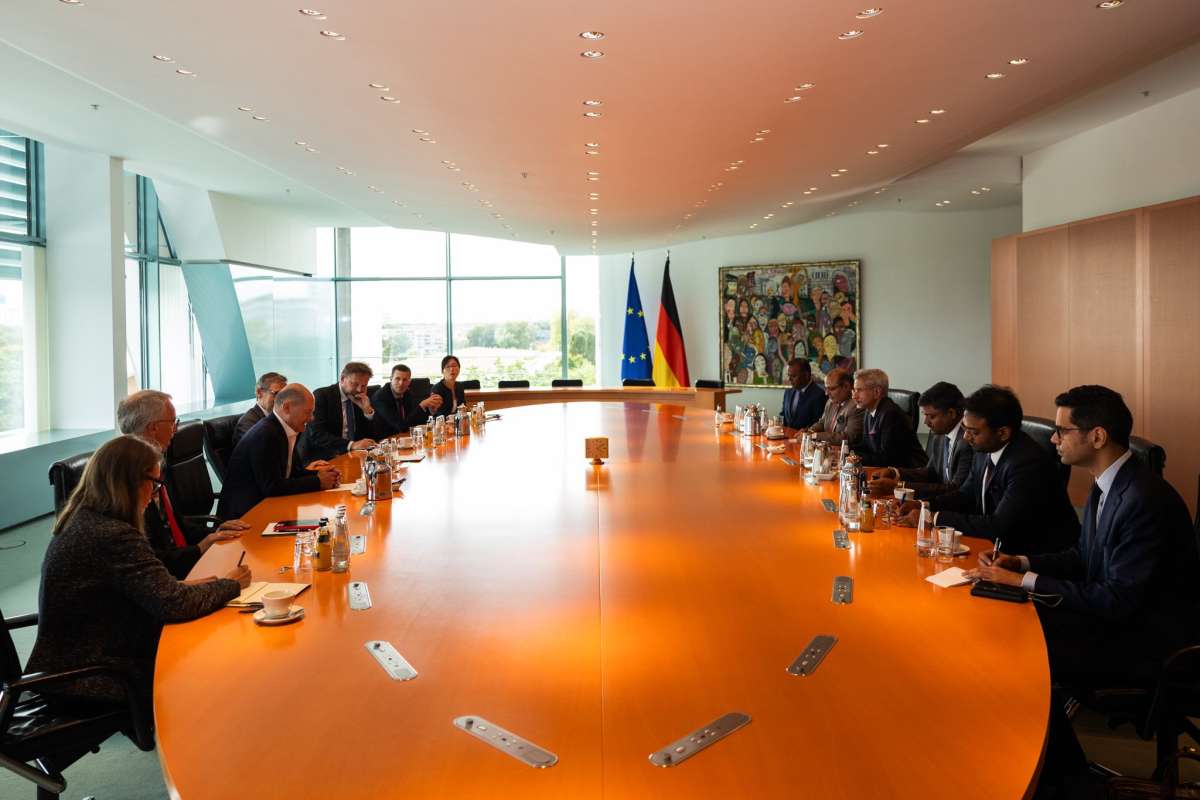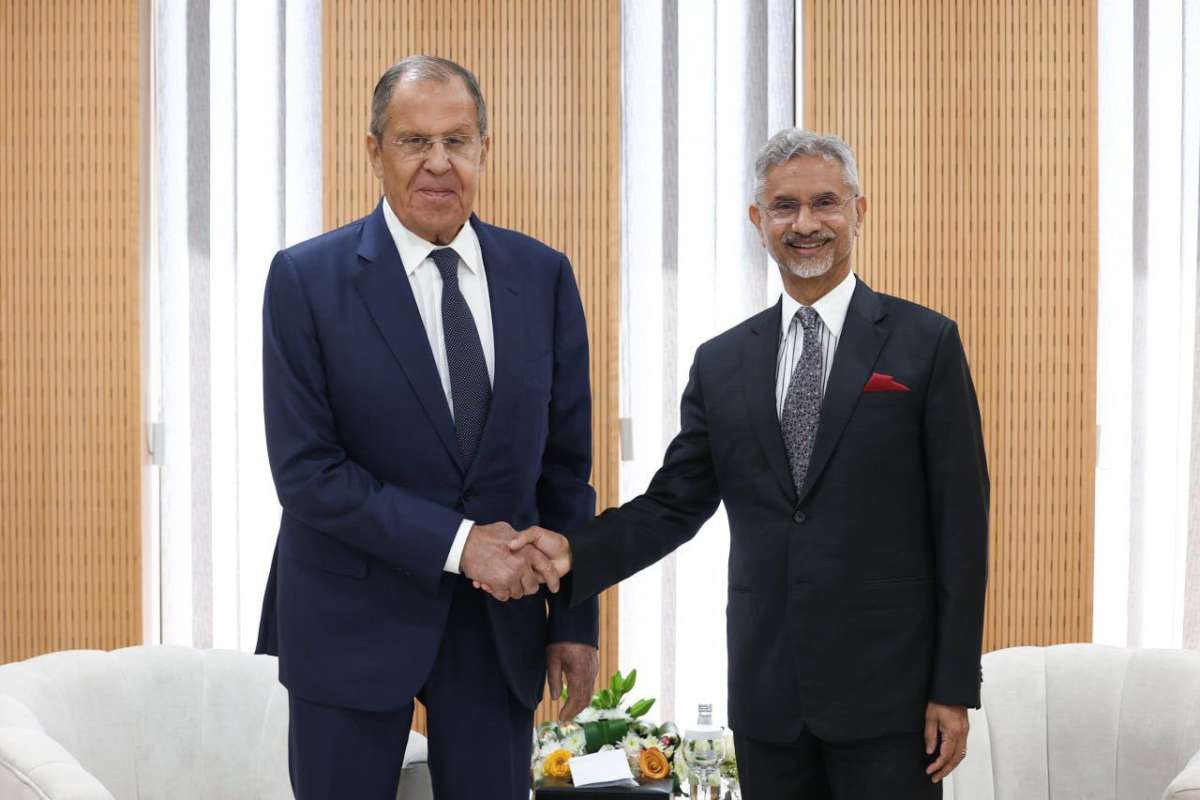Jaishankar highlighted the need for reform of United Nations Security Council membership in permanent and non-permanent categories….reports Asian Lite News
External Affairs Minister S Jaishankar attended the first-ever Joint Ministerial Meeting of L.69 and C-10 groupings of nations on the sidelines of the 79th session of the United Nations General Assembly on Thursday.
During the meeting, Jaishankar highlighted the need for reform of United Nations Security Council membership in permanent and non-permanent categories.
The L.69 Annual Ministerial Meeting meeting was chaired by Saint Vincent and the Grenadines Prime Minister, Ralph E Gonsalves, in his capacity as Spokesperson of the L.69, according to the Ministry of External Affairs (MEA) press release.
Taking to X, Jaishankar stated, “Encouraged by the first – ever Joint Ministerial Meeting of L-69 and C-10 groupings of nations. Highlighted the pressing need of comprehensive reform of UNSC membership in both permanent and non-permanent categories.”
“Called for Text Based Negotiations in the IGN process to achieve concrete outcomes in a fixed timeframe. Thank PM Ralph Gonsalves of St. Vincent and Grenadines for his exemplary leadership of L-69. Laud colleagues from C-10 for their enthusiastic participation today,” he added.
During the L.69 Annual Ministerial Meeting, the ministers reiterated the urgent need to make the Security Council more representative, transparent, efficient, effective, democratic and accountable, and recognised that the Summit of the Future provided an opportunity for renewed commitment to Security Council reform, according to MEA press release.
In a press release, MEA stated, “Against the backdrop of the Summit of the Future, the leaders of the AU Committee of 10 (C-10) participated in this annual High-Level meeting to exchange views on the status of the Intergovernmental Negotiations (IGN) on Security Council Reform.”
The Ministers stressed the indispensable role to be played by developing countries in safeguarding the effectiveness, credibility and relevance of the Security Council’s decisions and outcomes.
In a press release, MEA stated, “They underscored that, for reform to be transformative, there must be greater representation of the Global South, especially for underrepresented and unrepresented regions and groups, such as Africa, Asia-Pacific and Latin America and the Caribbean, in both the permanent and non-permanent categories of membership.”
The ministers expressed their support for continuing discussions on the issue of representation of cross-regional groups, including Small Island Developing States (SIDS). The leaders reaffirmed their support for the Common African Position, as espoused in the Ezulwini Consensus and Sirte Declaration.
The ministers expressed that the Common African Position is a manifestation of the principle of African Solutions for African Challenges and reiterated the proposed elements as the only way to sufficiently redress the historical injustices done to Africa.
In a press release, MEA stated, “The Ministers recognized that further delays in a comprehensive reform of the Security Council directly impacts the credibility and legitimacy of the United Nations. They further renewed their commitment to demonstrating the necessary political will to achieve the widest possible political acceptance on the five clusters set forth in GA Decision 62/557.”
Jaishankar also met Ralph Gonsalves and called it the “best way of starting a day.” “Meeting PM Ralph Gonsalves of St. Vincent & the Grenadines is the best way of starting a day,” he posted on X.
Jaishankar met Bhutanese counterpart DN Dhungyel at the L-69 meeting. Taking to X, he stated, “Nice to see @FMBhutan DN Dhungyel at the L-69 meeting.”
He also had a quick chat with his Brazilian counterpart, Mauro Vieira. In a post on X, he stated, “Quick chat with FM Mauro Vieira of Brazil ahead of the IBSA & BRICS meetings at #UNGA79 today.”
EAM Jaishankar, who is currently on a visit to the US, met several delegates and diplomats on the sidelines of UNGA, including Kazakhstan Foreign Minister Nurtleu, Morocco Foreign Minister Nasser Bourita, Belgium Prime Minister Alexander De Croo, and Swiss Federal Councillor Ignazio Cassis, and others on Wednesday. (ANI)
EAM, Lavrov discuss urgent international issues
External Affairs Minister S Jaishankar held a meeting with his Russian counterpart Sergey Lavrov on the sidelines of the 79th Session of the UN General Assembly in New York and discussed key matters on the bilateral cooperation agenda and urgent international issues.
The urgent international issues discussed included preparations for the BRICS Summit and “Ukraine settlement,” a Russian Foreign Ministry statement said.
Jaishankar and Lavrov agreed to continue coordinating interactions between Russia and India within the key multilateral formats.
“The two Ministers discussed key matters on the bilateral cooperation agenda, as well as urgent international issues, including preparations for the upcoming #BRICS Summit in Kazan, the Ukraine settlement, as well as the situation in the Asia-Pacific Region in connection with the Western attempts to bring NATO elements into this region,” the statement said.
Jaishankar said he and Lavrov discussed bilateral cooperation and regional issues. “Met FM Sergey Lavrov this afternoon at #UNGA79. Discussed our bilateral cooperation and regional issues,” he posted on X.
It was the second meeting between two leaders within a month. Jaishankar and Lavrov held a meeting on the sidelines of the India-Gulf Cooperation Council (GCC) Foreign Ministers’ Meeting in Saudi Arabia on September 9.
Jaishankar, who is currently on a visit to the US, met several delegates and diplomats on the sidelines of UNGA, including Kazakhstan Foreign Minister Nurtleu, Morocco Foreign Minister Nasser Bourita, Belgium Prime Minister Alexander De Croo, and Swiss Federal Councillor Ignazio Cassis, among many others.
Jaishankar held a meeting with the Belgian PM and discussed manufacturing and technology cooperation as well as exchanging their views on the situation in Ukraine amid the Russia-Ukraine conflict.
“Glad to meet PM Alexader De Croo on the sidelines of UNGA 79 today. Discussed manufacturing and technology cooperation. Also exchanged views on Ukraine,” he said in a post in X.
Jaishankar also held talks with Greek Foreign Minister Giorgos Gerapetritis and discussed an array of topics, including shipping, energy, mobility, connectivity, and defence.
Jaishankar also met UK Foreign Secretary David Lammy and held talks with him on strengthening the India-UK Comprehensive Strategic Partnership.
“Good meeting with UK FS David Lammy on the sidelines of UNGA 79. Carried forward our conversations on strengthening the India-UK Comprehensive Strategic Partnership. Also discussed the conflict in Ukraine,” Jaishankar said in another post in X.
Jaishankar also met his Australian counterpart, Penny Wong. Taking to X, he wrote, “Catching up with Quad partner FM Senator Penny Wong at UNGA79.” (ANI)
ALSO READ: China and US are partners, not rivals: Wang Yi
